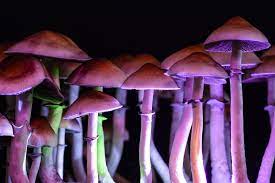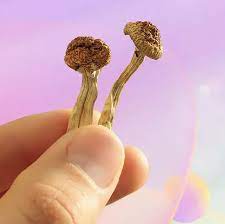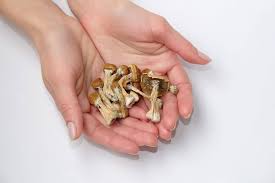Introduction
Psilocybin, a naturally occurring psychedelic compound found in certain mushrooms, has a rich history of use by indigenous cultures for spiritual and medicinal purposes. In recent years, Canada has seen a resurgence of interest in psilocybin, as researchers and policymakers explore its therapeutic potential.
This article delves into the historical roots of psilocybin use in Canada, its indigenous connections, and the modern revival of this ancient wisdom.
I. Indigenous Traditions

The use of psilocybin-containing mushrooms dates back thousands of years in Canada. Various First Nations communities, such as the Ojibwa, Cree, and Coast Salish, have traditions that involve the ceremonial use of these mushrooms. They believed that these fungi connected them to the spiritual world, offering insights, healing, and a deeper understanding of the natural environment.
A. The Ojibwa Connection
- The Ojibwa people, native to the Great Lakes region, have a long history of incorporating psilocybin mushrooms into their spiritual practices.
- Rituals involving psilocybin were often led by medicine men or women, who facilitated the experience for the individual seeking healing or guidance.
B. The Cree and Coast Salish Influence
- The Cree and Coast Salish cultures also have historical references to the use of psilocybin-containing mushrooms.
- These indigenous groups considered these fungi as sacred tools to connect with the spirit world and gain insights into their lives.
II. Legal Status and Prohibition
In the mid-20th century, as part of a broader movement against psychedelic substances, psilocybin-containing mushrooms were classified as illegal drugs in Canada. This legal status persisted for decades, stifling research and preventing individuals from accessing this ancient form of healing.
A. The 1970s: Heightened Restrictions
- In the 1970s, Canada, like many countries, introduced stricter laws against psychedelic substances, including psilocybin-containing mushrooms.
- This period marked a turning point in the legal status of psilocybin.
B. Underground Movement
- Despite legal restrictions, a vibrant underground community emerged, advocating for the responsible use of psilocybin for therapeutic and spiritual purposes.
III. The Psychedelic Renaissance
In recent years, Canada has witnessed a resurgence of interest in psilocybin, driven by scientific research and a growing understanding of its potential therapeutic benefits.
A. Research and Clinical Trials
- Universities and research institutions in Canada have begun to conduct clinical trials to explore the efficacy of psilocybin-assisted therapy for conditions such as depression, anxiety, and PTSD.
- These studies have shown promising results, leading to increased support for further research.
B. Legal Shifts
- Advocacy efforts and legal challenges have led to significant changes in the perception and regulation of psilocybin in Canada.
- In certain provinces, individuals can now apply for exemptions to possess and use psilocybin for therapeutic purposes.
IV. Indigenous Perspectives on the Modern Revival

The resurgence of interest in psilocybin prompts important conversations about cultural appropriation, respect for indigenous traditions, and the role of these substances in contemporary society.
A. Indigenous Leaders and Advocates
- Indigenous leaders and activists are at the forefront of discussions about the responsible and respectful use of psilocybin.
- They emphasize the importance of honoring the cultural and spiritual significance of these mushrooms.
B. Bridging Traditions
- Efforts are underway to bridge indigenous practices with modern therapeutic approaches, ensuring that the resurgence of psilocybin is grounded in respect for the wisdom of the past.
III. The Psychedelic Renaissance
In recent years, Canada has witnessed a resurgence of interest in psilocybin, driven by scientific research and a growing understanding of its potential therapeutic benefits.
Research and Clinical Trials
Universities and research institutions in Canada have begun to conduct clinical trials to explore the efficacy of psilocybin-assisted therapy for conditions such as depression, anxiety, and PTSD. These studies have shown promising results, leading to increased support for further research. Notably, breakthrough studies have indicated that guided psychedelic experiences, facilitated by trained therapists, can lead to significant and sustained improvements in mental health.
Legal Shifts
Advocacy efforts and legal challenges have played a crucial role in reshaping the perception and regulation of psilocybin in Canada. There has been a groundswell of support from various sectors of society, including medical professionals, psychologists, and advocacy groups, who argue for a more nuanced and compassionate approach to psychedelics. As a result, certain provinces in Canada have begun to grant exemptions, allowing individuals to possess and use psilocybin for therapeutic purposes under carefully regulated conditions.
IV. Indigenous Perspectives on the Modern Revival
The resurgence of interest in psilocybin prompts important conversations about cultural appropriation, respect for indigenous traditions, and the role of these substances in contemporary society.
Indigenous Leaders and Advocates
Indigenous leaders and activists are at the forefront of discussions about the responsible and respectful use of psilocybin. They emphasize the importance of honoring the cultural and spiritual significance of these mushrooms. Many advocate for policies that acknowledge the historical use of psilocybin and seek to integrate indigenous perspectives into the broader conversation about psychedelics.
Bridging Traditions
Efforts are underway to bridge indigenous practices with modern therapeutic approaches, ensuring that the resurgence of psilocybin is grounded in respect for the wisdom of the past. This involves collaborations between indigenous communities, researchers, and therapists to develop culturally sensitive approaches to psychedelic therapy. These efforts aim to uphold the integrity of indigenous traditions while also leveraging modern scientific knowledge to enhance therapeutic outcomes.
Conclusion
The history of psilocybin use in Canada is a testament to the enduring wisdom of indigenous cultures and the potential for ancient practices to find relevance in modern healing. As research continues and legal attitudes evolve, it is essential to approach psilocybin with respect for its cultural origins and an understanding of its potential to bring about profound healing and transformation. The integration of indigenous perspectives alongside scientific advancements promises a more holistic and inclusive approach to psychedelic therapy, one that honors the past while embracing the potential for positive change in the future.

